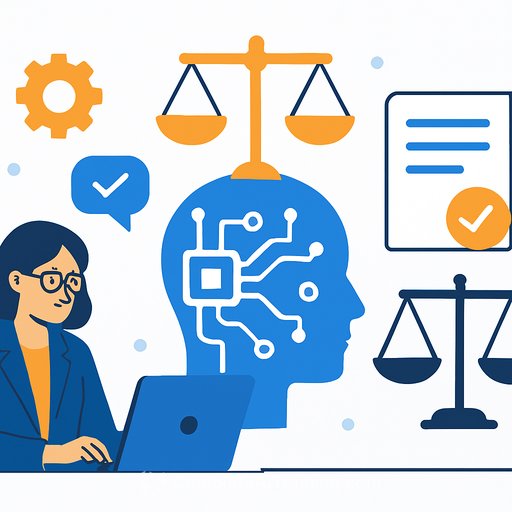AI in UK law has crossed the tipping point
AI is now part of daily legal work across the UK. Recent research shows 61% of lawyers already use it, up from 46% earlier this year. Only 6% say they have no plans to adopt it. The real question is how to use AI safely, effectively, and strategically.
The accuracy problem: general vs legal-specific tools
Accuracy is the point of failure. Errors in AI outputs become professional mistakes with real consequences for lawyers, firms, and clients.
Half of lawyers are using general-purpose platforms like ChatGPT and Gemini for drafting and admin. The other half are using legal-specific systems. This split matters. General tools save time, but they are not built to be a trusted springboard for legal analysis. Legal-focused systems, benchmarked against verified sources, are proving more reliable. 88% of lawyers who use legal AI exclusively report greater confidence in the output.
Proof beats perception: why benchmarking matters
Confidence cannot rest on marketing copy or gut feel. It needs evidence. Benchmarking gives you an objective way to judge tools by comparing answers against a human-verified "golden answer."
LawY, a legal AI research assistant, recently published an evaluation comparing its system with two widely used platforms. Tested on a broad set of typical UK legal questions across multiple practice areas, LawY achieved 86% overall accuracy, compared with 57% for Gemini 2.5 Pro and 54% for ChatGPT 4.1. The goal of publishing comparative results is simple: help lawyers make informed decisions and steer future product development with transparency.
Safe adoption already pays off
Firms that adopt AI safely are freeing time for higher-value work and reporting better balance. Billing models will shift as routine tasks compress, pushing long-discussed pricing changes to the forefront.
The risk of doing nothing is growing. As Gareth Walker, CEO of LEAP, puts it: "The legal sector is at a turning point. While AI adoption is accelerating, culture and confidence are struggling to keep pace. Firms that lean on generic tools without clear frameworks risk serious missteps."
Five principles for safe AI adoption
- Choose sector-specific tools. Legal research needs systems built for law, benchmarked against trusted legal sources.
- Insist on transparency. Require published accuracy data, test methodology, and regular evaluations.
- Embed a firm-wide strategy. Don't leave adoption to individual discretion. Define governance, use cases, and approvals.
- Invest in training. Teach lawyers to test prompts, verify citations, and challenge outputs.
- Prioritise client outcomes. Aim for faster turnarounds, lower costs, and more accurate advice.
What to check before you roll out any AI tool
- Jurisdiction and citations: Does it cite up-to-date, UK-relevant sources you can verify?
- Measured accuracy: Is there a published benchmark with a clear test set and "golden answers"?
- Data protection: How is client data stored, processed, and excluded from model training? Review guidance from the ICO on AI and data protection (ICO resource).
- Auditability: Are prompts, versions, and outputs logged for supervision and file notes?
- Human review: Is there a mandatory lawyer sign-off step before anything reaches a client?
Your next move
Pick one priority workflow-research, document review, or first-draft generation. Test a legal-specific tool against a fixed set of common matters. Measure accuracy, speed, and citation quality. Then set policies and training before wider rollout.
If you want structured upskilling for your team, explore focused AI training by role (courses by job).
The firms that win won't be the first to try AI-they'll be the first to demand proof, set clear guardrails, and make training non-negotiable.
Your membership also unlocks:






